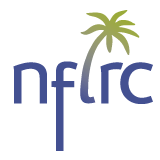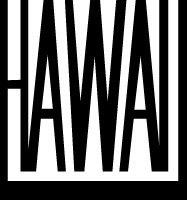An exploration of historical Alutiiq language texts
Dehrich Chya, Julia Fine pp. 1-22
For the past five years, the Alutiiq Museum and Archaeological Repository has been documenting intricacies of the Alutiiq language with the help of Elder speakers and a grant from the National Science Foundation (#1360839). The project’s primary focus has been recording vocabulary, grammar, and ways of speaking for this threatened Native Alaskan language. However, historical texts also offer insight into Alutiiq speech. In the late 1700s, foreigners began writing words and phrases in Alutiiq, creating rare records of the language as spoken in the eighteenth, nineteenth, and early twentieth centuries. Staff members have been searching archival texts for archaic Alutiiq vocabulary to bring awareness of it to community members. Archives in Berkeley, California; Washington, DC; and St. Petersburg, Russia, have provided valuable linguistic information for addition to the corpus of Alutiiq language documentation. The project is breathing new life into ancestral vocabulary by sharing it with the last generation of first-language Alutiiq speakers for pronunciation and interpretation. It is also allowing students of Alutiiq to learn aspects of the language that have not been used in living memory.
Zooming through Field Methods: Teaching language documentation remotely
Shirley Gabber, Gregory Vondiziano pp. 23-48
The COVID-19 pandemic has impacted not only how linguistic fieldwork is conducted but also how university-level field methods courses are taught. In this paper, we detail the methodology utilized during the 2020–21 academic year by the University of Hawaiʻi at Mānoa Department of Linguistics for the entirely remote Field Methods sequence documenting Bua (Kubulau) Fijian. We discuss the advantages and disadvantages of conducting a field methods course using videoconferencing software and present recommendations for teaching such a course online. While the necessity of holding classes remotely will wane with the pandemic, we believe that remote modalities nevertheless show promise for future application and innovation in linguistic data collection and that competence in remote field methods should be taken as both a useful and necessary part of linguistic training.
Cotopaxi Media Lengua is still very much alive
Jesse Stewart, Lucia Gonza Inlago, Gabriela Prado Ayala pp. 49-63
On a 2022 fieldtrip to Ecuador, we encountered a large community of Media Lengua speakers in the province of Cotopaxi where the language was thought to be dormant. This is the same region where Pieter Muysken had first documented this ‘mixed language’ in the 1970s. However, subsequent fieldwork thereabout by several linguists had failed to turn up the language. This field report provides a brief introduction to Media Lengua, a description of our fieldwork in Cotopaxi, and insights into this variety of Media Lengua.
Methodological problems in reclaiming Nuu-wee-ya’ from archival materials: The case of verbal prefix semantics
Jaeci Nel Hall, pp. 64-129
The purpose of this research is to support the language revitalization and reclamation of Nuu-wee-ya’, a Dene language from Southern Oregon and Northern California, and to contribute to the discussions on methodological particularities of archive-based research for language revitalization. Nuu-wee-ya’ is a sleeping language comprising three dialects (Tututni/Upper Coquille, Tolowa, and Galice), two of which are currently being reawakened through community efforts and philological analysis of archival materials. Native American philological analysis for language reclamation is a burgeoning field needing methodological introspection. This paper describes the semantic function of a small subsection of verbal prefixes: na-, ni-, nu-, ne-, and nv-. I also provide commentary on unique factors of language reclamation from a philological analysis. It is hoped that this work can provide information on approaches to analyzing verb semantics to further speaker-learner reclamation of a sleeping language, furthering the development of methodologies in the field of Native American philology as well as contributing to the understanding of the semantic use of verbal prefixes in Dene languages. May this work support the growth and use of Nuu-wee-ya’ language and culture.
On the Impact of the National Breath of Life Archival Institute for Indigenous Languages: Developing an Assessment Model for Archive-Based Revitalization
Gabriela Pérez Báez, Kristen L. Morio, Alison L. Lapointe, Daryl Baldwin, pp. 130-184
The National Breath of Life Archival Institute for Indigenous Languages has provided training in archive-based linguistic research for revitalization since 2011 (Baldwin et al. 2018). Four two-week workshops held biennially through 2017 provided training in phonetics, phonology, morphology, and syntax; on accessing archival documentation; and on applied uses of archive-based research for language revitalization. These workshops served 117 Community Researchers from fifty-five Native North American communities. Overtime, it became important to determine the impact of the workshops on community efforts. Thus, a third-party program assessment and evaluation was carried out, supported by the National Science Foundation Documenting Endangered Languages program (NSF-DEL BCS #1561167, PI D. Baldwin). In this paper, we outline the principles upon which the assessment and evaluation were designed, delve into the quantitative and qualitative methods implemented, and provide ample discussion of the assessment findings. We engage in a discussion on the importance and value of assessment and evaluation to any program akin to National Breath of Life. We close by showing how the assessment and evaluation have given validity to the development of new tools and workshops that address the needs of advanced phases of archive-based research for revitalization, and have also provided a foundation for the design of a Native American philology model. This was especially important considering that the workshops had remained mostly unchanged since they were first developed in the mid-1990s.
Strategies for lexical expansion in Algonquian languages
Rachel Fedorchak, Vade Kamenitsa-Hale, Hunter Thompson Lockwood, Monica Macaulay, pp. 185-220
This paper provides an empirical study of word formation and lexical expansion in a set of Algonquian languages, considering 153 terms for each language. These terms range from words that predate European colonialism to more recent forms coined by English L1 speakers. We propose a classification of the methods of lexical innovation, which involves the intersection of a set of grammatical and a set of semantic strategies. By far, the most common means of constructing new terminology that we found in the data combined nominalization with associated-action metonymy (the use of a form denoting an action associated with the object). We discuss challenges to doing such studies, especially the idiosyncrasies of dictionary creation. We also consider how our results can be used in language reclamation, especially immersion programs that need words for concepts in the school curriculum. We do not prescribe a “right” way to develop new vocabulary, but our findings may make explicit some of the intuitions speakers of Algonquian languages have about how the naming of new objects is approached.
Same, similar, or different: Lexical overlap across Australian Indigenous signed languages
Jennifer Green, Eleanor Jorgensen, pp. 221-253
To date, studies that investigate lexical overlap in signed languages have mainly considered the relationships between deaf community signed languages. The alternate sign languages of Indigenous Australia provide an opportunity to take another perspective – they are perhaps amongst the oldest known sign languages in the world, their main users are hearing, and senior people are the acknowledged experts, at least in some domains of sign knowledge and use. We developed a comparative list of signs as one tool in an investigation of dimensions of similarity and difference in nine language communities from Central and Northern Australia. We coded the data for the articulatory parameters of handshape, place of articulation, and movement, and developed a comparison matrix that captured similarity by using alphanumerical labels for unique sign forms. In doing so, we accommodated the existence of both inter- and intra-signer variation within single communities, a factor that has been overlooked in some previous studies. Our results support earlier observations that correlate sign diversity with geographical distance. We identify two distinct clusters of communities within which are higher percentages of lexical overlap. The first of these includes the Warlpiri, Anmatyerr, Alyawarr, and Arrernte language groups, while the second cluster includes Gurindji, Mudburra, and Kukatja. We note a general stability in lexical overlap (i.e., shared lexicon) in comparison to earlier records, but also an increase in similarity, suggesting some convergence might be taking place. Finally, we point to the need to unpack the complex sociocultural and linguistic factors that interact to drive similarity and difference in these signing practices. The list of commonly known signs, and the methods we have developed, is a useful resource that can inform future comparative studies.
Training communities in documentation and technology: The Language Documentation Training Center model
Jennifer Sou, Leah Pappas, Khairunnisa, Gary Holton, pp. 254-277
Language documentation is increasingly seen as a collaborative process, engaging community members as active participants. Collaborative research produces better documentation that is valuable for both the academic community and the speakers. However, in many communities, speakers and language advocates lack the skills necessary to fully engage in collaborative projects. One way to overcome this barrier is to provide language documentation training to community members. Such training should teach participants how to ethically and comprehensively complete every stage of the documentation process while offering opportunity for theoretical discussion and practical application. In this paper, we offer one possible model for community-based training in language documentation and conservation that focuses on bidirectional learning and capacity building. We describe a training workshop that was held in 2018 in Kupang, the capital of Indonesia’s Nusa Tenggara Timur (NTT) province. A collaboration between the University of Hawai‘i, Leiden University, and Artha Wacana Christian University, this workshop implemented a model based on the practices of the Language Documentation Training Center (LDTC), an organization devoted to training speakers to document their own languages. We detail the NTT workshop itself, summarize post-workshop feedback, and offer suggestions to others looking to provide similar training in speaker communities.
Assessing access level as a quality criterion
Kristian Roncero, pp. 278-296
This paper discusses levels of access in language archives and their implications for assessment. In the absence of well-established criteria, part of the evaluation of language archives is often based on accessibility; roughly, the more “unrestricted” or “open access” content, the better the archive. In this paper, I argue that whilst open access may be indicative of good scientific practices, such criteria cannot be extrapolated to documentary linguistics. I start by explaining the differences between those concepts. Then I discuss the dialectic tension in which language depositors frequently find themselves. On the one hand, archives and grant agencies ask them to archive as much as possible with unrestricted access while also gathering a corpus as “naturalistic” and diverse as possible in terms of content, genres, speakers, and so forth. On the other hand, depositors are expected to behave ethically, which involves restricting access to certain materials. I move on to lesser-discussed cases illustrating how ethical decisions concerning accessibility are strongly bound to the needs and situations of the specific communities at a specific time. I finish by proposing new evaluation criteria, which do not penalise depositors for behaving ethically in situations out of their control, and a summary of the discussion.
Seeing Speech: Using Praat to Visualize Hul’q’umi’num’ Sounds
Sonya Bird, Rae Anne Claxton, Maida Percival, pp. 297-324
As is typical across Turtle Island, the Hul’q’umi’num’ (Coast Salish) language revitalization movement is being carried by adult language learners (Haynes 2010; McIvor 2015) but becoming a proficient Hul’q’umi’num’ speaker is challenging given the complexity of its sound system. In this paper, we share our experiences using the speech analysis software Praat (Boersma & Weenink 2018) to help in our pronunciation work. We describe the types of pronunciation patterns that can benefit from Praat-based speech visualization, including whole sound adjustments, glottalization adjustments, and timing adjustments. We then discuss how this tool has helped us, by providing tangible feedback on our speech, by allowing us to learn by observing and modelling (a more gentle and culturally appropriate form of learning than explicit instruction), and by learning from Elders through their voices, even when they are not able to be present during pronunciation sessions. In our experience, these benefits combine to increase the confidence that learners feel in working on their pronunciation and therefore in becoming more proficient speakers.




